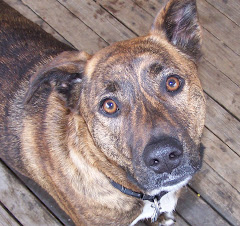Every one likes a nice hot bath right? Here's a tip for a Hand Made Gift.
Infused Bath Oil
Grape Seed Oil (or other suitable oil)
Dried herbs or flowers (lavender works great)
Skin safe essential oils (optional: for added aromatic and healing qualities.)
Find a pretty corked bottle at the thrift or craft store. Put dried herbs or dried flowers in the bottle. Fill with oil. Let sit for several day's. Sunlight will speed the process. Add drops of essential oil if desired. Use a small amount of infused oil in your bath water, enjoy....hmmm.
Hello Everyone, I have to say I've been busy lately and have not had much time to fit in my blogging. I am trying to get all of my work done because I leave on Tuesday to go back to Kentucky to see my boy Blaine. He is graduating from his Advanced Individual Training with the Army Cavalry Scout program. Whoo Hoo!!! I am so exited, except for the flight, flying is not my favorite thing to do.
Oh well we won't dwell on that. Speaking of dwelling I was tagged today by Sam at Dwell and Cultivate. I have been reading Sams blog for a few weeks now, and I have to say I find it inspiring. Through sharing his life experiences he reminds me of my faith and what is important in life. I hope you can check out his blog! So before we get down to business here's the rules to the game Sam has invited me to play.
1. Link the person who tagged you.
Here goes...
1) I never thought I would be a meter reader, but I am now (hubby recruited me)
2) My 2 dogs are some of my very best freinds
3) I just earned my 1st water certification "Cross Connection Specialist" whoo hoooo!!
4) I enjoy old fashioned drives in the country
5) I just started a new business Trout Waters Gifts. Just click on the basket
6) I wish I could play the piano that sits in my living room
7) My kids and dogs are my heros
Now who will I tag? OK... Heather, Beth, Joe, Birdy Trish
Ok back to business...
I've been busy writing reports.
I am fortunate enough to have a job where I get to go on romantic /work get aways, with my sweety and get paid for it. Well we have to pay for the fun part...oh well anyway, we provide a service to State of Washington Dept of Health, Office of Drinking Water, where we do water system inspections, and reports to ensure water quality for small drinking water systems (ground water wells, spring sources, surface water, etc). Dept. of Health wants to be sure that public drinking water operators are knowledgeable in taking care of system's that bring the water to your tap. Harmful bacteria and other contaminants can live in water that is not properly maintained. If you have questions about the quality of your water you can find information on the DOH website. Public drinking water systems can be small community wells, systems serving businesses, schools, day cares, industries, etc.
Have A Waterful Day!! I welcome your comments






















